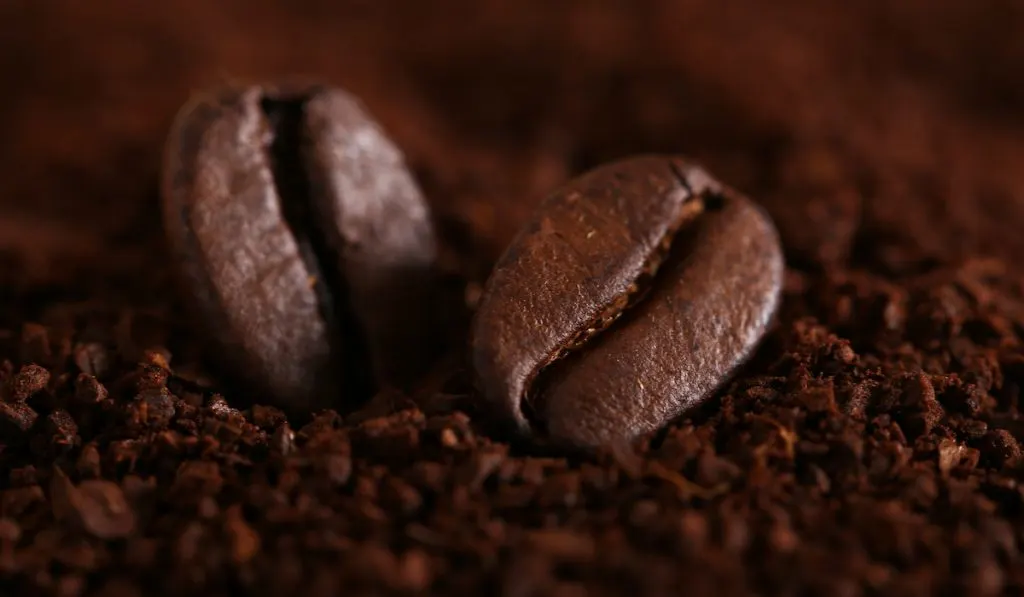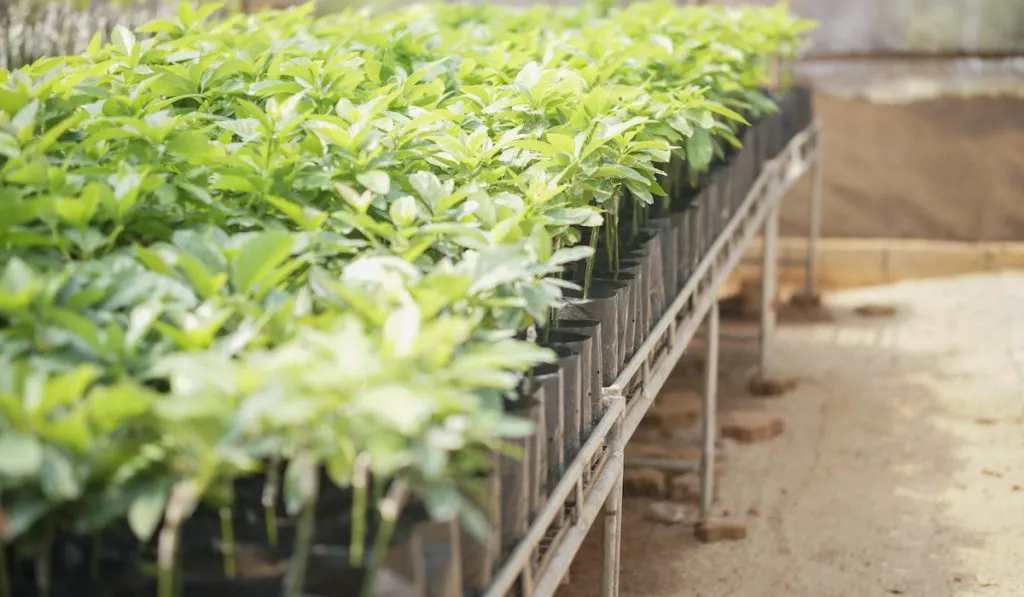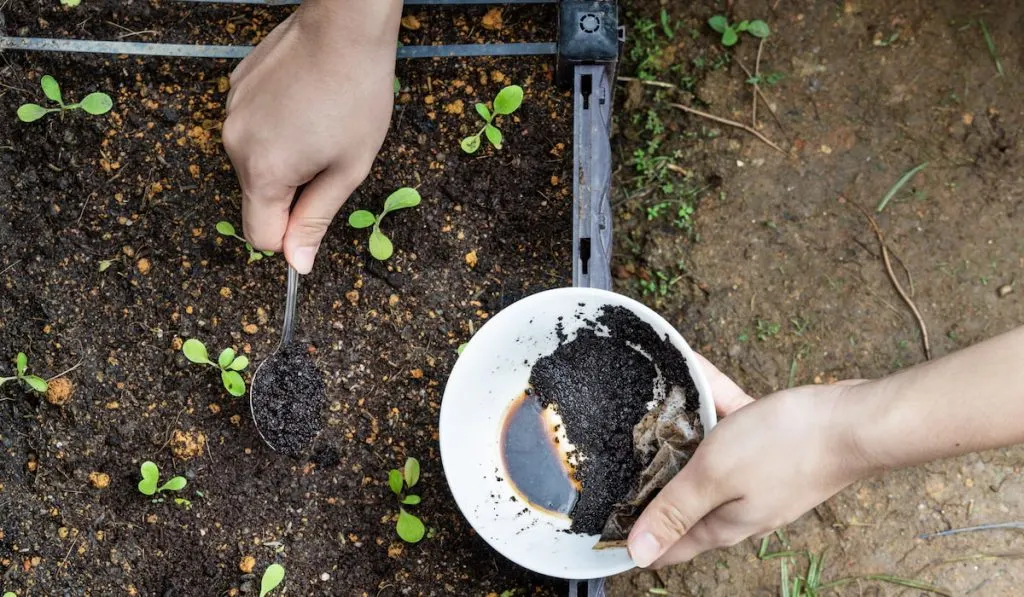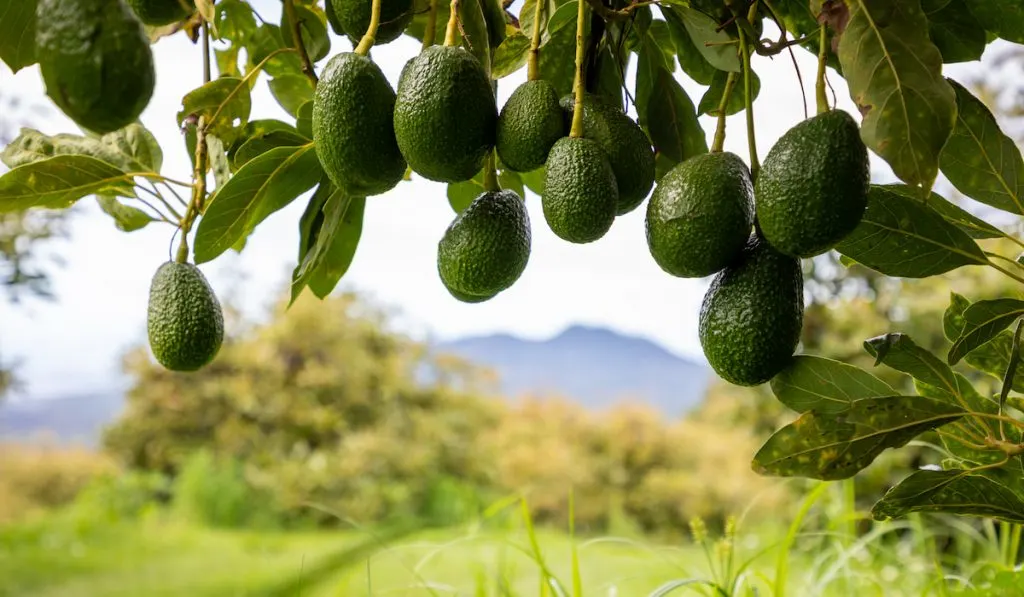Caring for your avocado trees can be challenging if they are grown in unfamiliar environments.
But with the right type of soil and soil amendments, your avocado trees will eventually produce delicious fruits.
Are coffee grounds good for avocado trees?
Yes, coffee grounds are good for avocado trees.
For those who prefer organic fertilizers, coffee grounds are an excellent addition to the soil. They can serve as mulch, fertilizer, and pesticide.
When used in any of the mentioned ways, coffee grounds optimize soil for avocado trees to thrive.

This article provides information on the use of coffee grounds on avocado trees. Herein, we discuss the effect of coffee grounds as well as the frequency of use.
Are Coffee Grounds Good for Avocado Trees?
For your avocado tree to remain alive and healthy, ensure you do not apply too much fertilizer. The feeder roots of the avocado tree are near the soil surface. Which means too much fertilizer can kill your tree.
In other words, for your tree to remain alive, it requires little or no fertilizer.
In place of fertilizers, you may opt to use an organic soil amendment like coffee grounds.
Coffee grounds serve as a source of nitrogen and potassium, nutrients essential to the growth of avocados.
One interesting thing about coffee grounds is that they provide the said nutrients in a slow-release fashion. The nutrients are then available to the soil over a relatively long period.
Besides being a source of soil nutrients, coffee grounds serve as a mulch. They help suppress weeds and conserve soil moisture.
The absence of weeds means that your avocado tree doesn’t have to compete with other plants for nourishment from the soil.
Water facilitates most if not all the processes in a plant. When soil water is severely depleted, plants will suffer.
But with a mulch like coffee grounds conserving soil moisture, your avocado trees should be fine.
Another impressive feature of coffee grounds is their ability to repel pests. Over time, gardeners have made claims that coffee grounds fend off pests like slug and snails.
What Type of Soil Do Avocado Trees Like?
The avocado tree is shallow-rooted. Its feeder roots stay close to the top layer of the soil and require proper aeration.
Hence, avocado trees prefer well-drained, rich, and loose soil. They also prefer slightly acidic soil with pH levels of around 6-6.5.

You may plant avocado in the ground or in containers with drainage holes and good potting soil.
To accommodate the large roods of the avocado, use sandy soil. In this type of soil, the roots are protected from root rot fungus.
Avocado trees prefer soil mulched using coarse yard mulch. It is recommended to mulch around 1/3 cubic yard for every tree when you plant.
Ensure you maintain about 6-8 inches from the tree trunk when mulching.
Contributions and Effects of Coffee Grounds as Soil Amendment
Mulching With Coffee Grounds
Mulch is useful but can be difficult to get in large quantities at low prices. Coffee grounds offer a solution to this problem.
It is thought that adding coffee grounds directly to the soil spells disaster for plants. But this only happens when thick layers of coffee grounds are used as mulch.
The caffeine content in coffee grounds suppresses plant growth. This is one reason why thick layers of coffee grounds can be detrimental.
The amount of caffeine that remains in coffee grounds is not specific, so it is better to avoid applying too much. Besides, some plants might be more sensitive to caffeine than others.
It is advisable not to use coffee grounds around seedlings and sprouting seeds because it can stall growth and germination.
Coffee grounds are like clay soil in that they have smooth particles that can sometimes clump together.
They can become a barrier that prevents water penetration and starves plants of water.
To prevent such an outcome, mix other organic matter with the coffee grounds like leaf mold or compost before using it to mulch.
You can also rake the coffee grounds in with the topsoil, so it does not clump together.
Using Coffee Grounds as Fertilizer

As it so happens, there are several nutrients contained in coffee grounds.
Some of these nutrients include nitrogen, phosphorous, potassium as well as several micronutrients. The presence of the said nutrients makes coffee grounds useful as fertilizer.
Coffee grounds act as a slow-release fertilizer. They provide the soil with nutrients slowly over a long period.
To apply coffee grounds as fertilizer, disperse them over the soil or add them to a compost heap.
Coffee grounds are rich in nitrogen. So, when you add them to a compost heap, ensure you even things out with a carbon-rich material like newspaper, dried leaves, or woody clippings.
The tiny gnawers and munchers in your compost heap help mix and process coffee grounds effectively.
What Impact Does This Have on Your Avocado Trees?
Using coffee grounds as fertilizer in the soil containing your avocado trees can help ensure successful growth.
Remember we said coffee grounds contain nitrogen? Well, nitrogen helps to increase the yield, fruit weight, and fruit size of avocados.
Potassium, on the other hand, plays a vital role in photosynthesis and respiration in avocado trees.
Remember we also said coffee grounds contain phosphorus? Well, phosphorus can help protect avocado trees from root rot.
When coffee grounds are used as mulch, your avocado tree will likely not have competition from weeds.
Coffee grounds may also reduce the rate at which water is lost from the soil. So, the chances of the avocado tree having issues due to water starvation will reduce.
Possibly, the addition of coffee grounds will keep away some pests that can damage your avocado seedling.
It has been posited that pests, like slugs and snails, stay away from coffee grounds.
How Much Coffee Grounds Is Enough?
Coffee grounds are acidic and a good nitrogen source. When used as compost, any excess acid can prevent the compost from decomposing.
The acidic levels of coffee grounds are not fixed, and during the composting process, these levels will vary.
It is recommended that coffee grounds should make up between 15-20% of the compost. Anything higher than 30% can be harmful to the composting process.

When making your compost heap, you need to keep it balanced. Do not just add nitrogen-rich materials like coffee grounds. Mix things up by adding carbon-rich substances.
For instance, for every coffee grounds layer, add carbon-rich substances like shredded newspaper or dry leaves.
You must not add too many coffee grounds to the compost heap.
Even when you try to balance the compost by adding carbon-rich substances, the coffee grounds can release compounds that kill earthworms faster.
Besides earthworms, these compounds can kill various other beneficial microbes too.
The addition of coffee grounds in moderation will help to improve the quality of your compost.
Ensure you add the coffee grounds in small quantities, and always remember to keep your heap balanced by adding both carbon and nitrogen-rich materials.
How Often Should You/Can You Add Coffee Grounds?
Due to the acidic nature of coffee grounds, they are perfect as acidic mulch. But you should be careful since using too much can be a problem. It is best not to apply too much regularly.
At the start, you may choose to apply a level tablespoon to the soil once a week. Then monitor the reaction of the avocado to coffee grounds.
If the avocado reacts positively to the coffee grounds, you may increase the frequency of addition. You may apply a cup every week or every other week.
Final Take
Coffee grounds are good for avocado trees. They can serve as mulch, fertilizer, pesticide, and even be a part of the compost.
While coffee grounds are good for avocado trees, they can be detrimental in uncontrolled amounts.
So, when you use coffee grounds on your avocado tree, ensure that you do not apply too much.
Resources
- https://www.growveg.com/guides/a-common-sense-guide-to-using-coffee-grounds-in-the-garden/
- http://mgorange.ucanr.edu/Edible_Plants/?uid=127&ds=530
- https://www.planetnatural.com/coffee-grounds-compost/
- https://www.avoseedo.com/how-to-keep-your-avocado-plant-alive/
- https://homeguides.sfgate.com/bone-meal-orange-trees-88110.html
- https://www.backyardboss.net/coffee-grounds-in-garden/
- https://www.gardeningknowhow.com/edible/vegetables/vgen/vegetables-in-coffee-grounds.htm
- https://ucanr.edu/blogs/blogcore/postdetail.cfm?postnum=12978#
- https://www.sciencedirect.com/science/article/pii/0304423875900382
- https://sqmnutrition.com/en/downloadpdf/71633
